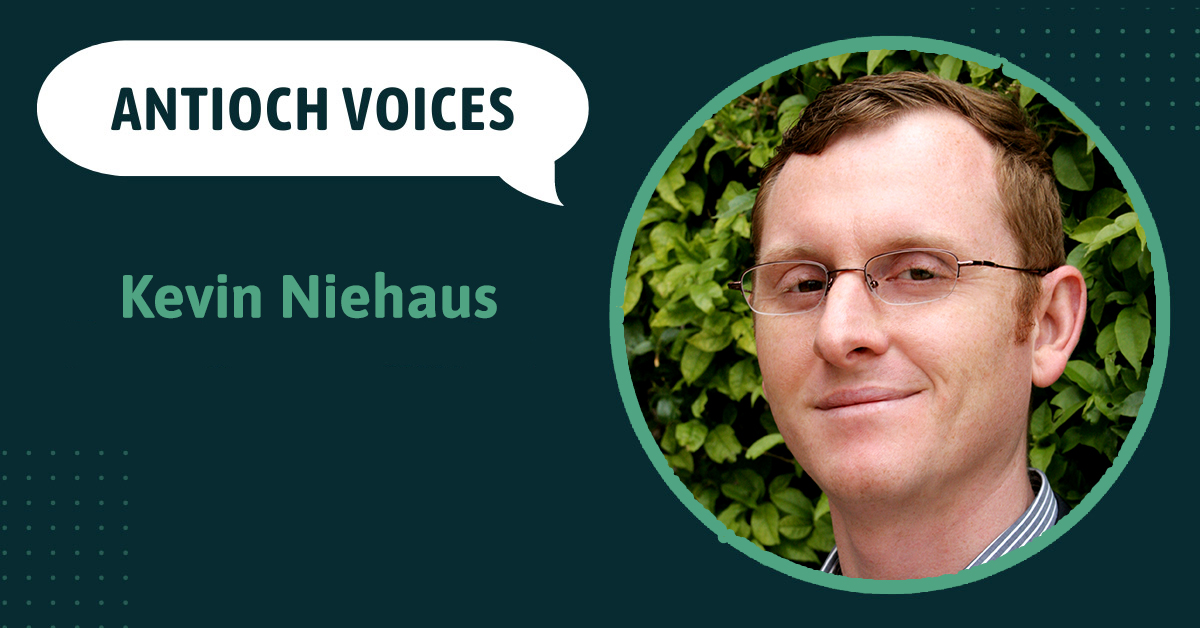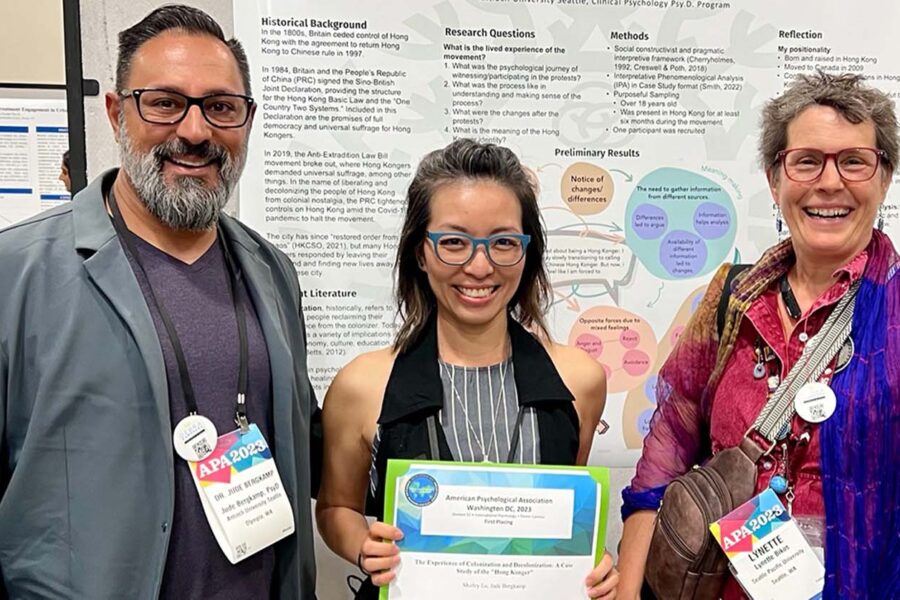This essay is part of Antioch Voices, a forum for Antiochians to speak out about issues important to them. Opinions expressed here belong to the author alone and do not necessarily reflect the official position of Antioch University. If you’d like to share your own voice, the first step is to send a short description of what you are planning to write about to [email protected].
Sitting there wanting to share your truth, choking on the words that describe your true self. Fear races through your mind that you may not be enough for them to stay. Your truth, a deep vulnerability, is not enough. A simple comment is like pulling tar from your mouth. “This moment is perfect,” you think to yourself, “It’s all planned out, and could this be the moment?” Then nothing. “Just spit it out,” you think—still nothing—one more missed moment. “Will I ever let them in?” you ask yourself. Finally, you panic, and the information falls out of your mouth. Cheeks red with embarrassment because the information cannot be put back in. Averting glances, you wait, thinking, “How will they respond? Oh, well, I did it, they know.”
This is a typical scene for people sharing their story and “coming out” to another person. But, in reality, sharing one’s private identity is an act of letting that person in. Sharing that level of information may come with fears of rejection and shame. Their truth may lead to losing that special someone. According to Mark Leary in his article “Emotional responses to interpersonal rejection” from the journal Dialogues in Clinical Neuroscience, several specific emotions arise from the prospect or presence of rejection, including hurt feelings, loneliness, jealousy, guilt, shame, social anxiety, embarrassment, sadness, and anger. To some, sharing their truth, coming out, and sharing such a gift has significant consequences.
According to The Williams Institute at UCLA, an estimated 3.5% of adults in the United States identify as lesbian, gay, or bisexual, and an estimated 0.3% of adults are transgender. Meaning that someone you know may be exploring sharing their authentic self. So what can be done to support them? First, a rule of thumb is to avoid phrases like “I always knew.” Until the individual lets you in, you assume an identity you do not know. Comments about “always knowing” project stereotypes and do not share support. Second, hold space for the person to share with you. Receiving the information is truly a gift. That person is signifying that they value and trust you with that information. Third, ask the individual if there is anything you can do in addition to support them (e.g., use specific pronouns or by referring to them by a particular name). Finally, refrain from sharing with others. This is important because doing so “outs” the person and steals their ability to choose who desires their story.
If you are a person who is exploring their identity and considering coming out, then you should be proud that you are taking the time to find your authentic self. You need to respect your journey and not rush the process. “Coming out” is a big step that is not always as straightforward for everyone. Each journey is different. This is not a “rip the bandage off” kind of situation but a recurring one. One that may happen again and again. Please note coming out to others is not a requirement. But, coming out can be something you do for yourself, to yourself. “Coming out” does not require one to share one’s identity with others; it can very much be an internal, personal experience. Claiming your identity just to yourself is equally authentic and therapeutic. Sharing it externally is just a gift you can offer them.
Make sure you respect your (or their) journey. Coming out to others sometimes means you/they could lose your/their family and friends. This means that unless you/they have a trusted partner or foundation of a selected family, you/they could lose the only social support you/they have ever known. Respecting the process is an important step. Some may be processing what their identity means to them and need more time to be ready to share that part of themselves with others. Pressure should not be put on individuals to explore sharing those private parts. They should also not be expected to justify why they are/are not coming out. Regardless of the reason, respect the steps and process. There is no race; the only prize is knowing who you are. Congratulations, and again, you should be proud of yourself if you are exploring or taking the steps.

Kevin Niehaus
Kevin Niehaus, PsyD, MBA, LPCC, is a Teaching Faculty member for the Master of Arts in Clinical Psychology program at Antioch University’s Los Angeles campus. Trained in psychology and business, Niehaus brings a blended approach to the human connection. Niehaus is a Licensed Professional Clinical Counselor who works in private practice and is the founder of Beach Cities Mental Health, a nonprofit focused on reducing barriers to mental health treatment. Niehaus aims to reduce stigma and shame in the clinical setting. As a member of the LGBTQIA+ community, he takes pride in helping future therapists continue to close the gap in clinical treatment.




